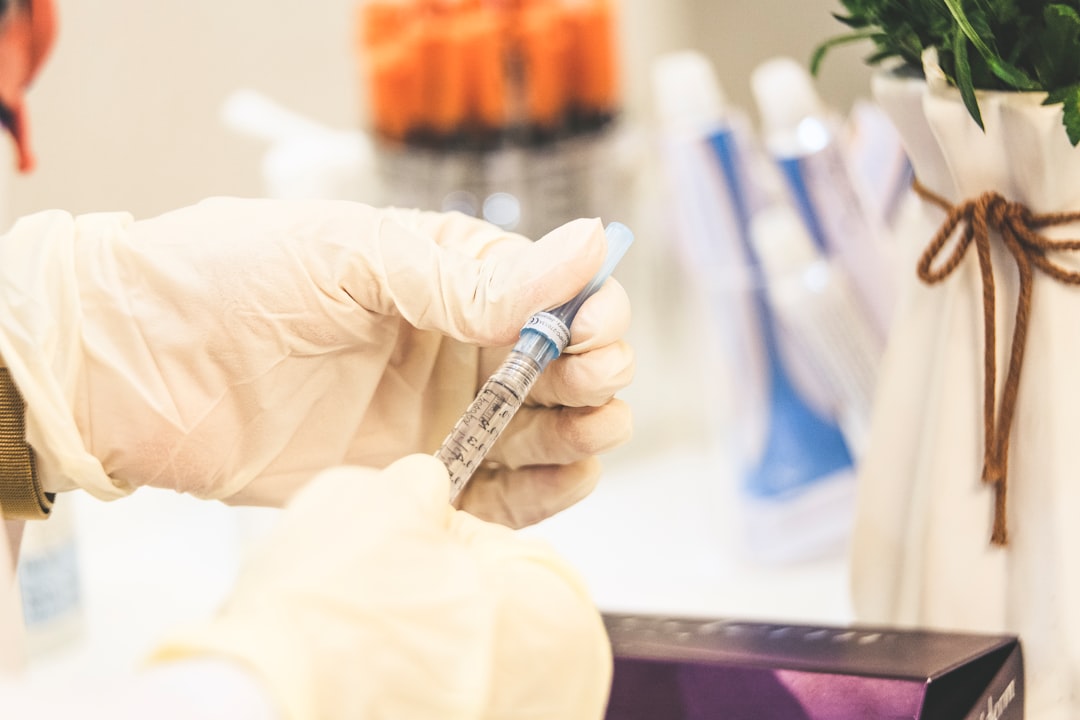Revolutionizing PCOS Treatment: How Weight Loss Drugs Are Changing Womens Lives
The Impact of PCOS on Women’s Health
Polycystic Ovary Syndrome (PCOS) is a prevalent hormonal disorder, affecting about 1 in 10 women of reproductive age, making it the leading cause of infertility. Women with PCOS often face a higher risk of developing metabolic syndrome, which encompasses conditions such as obesity, insulin resistance, and cardiovascular disease. This syndrome can significantly impact a woman’s overall health and well-being. For instance, a woman diagnosed with PCOS might experience excessive weight gain and struggle with managing her blood sugar levels, leading to further health complications.
The hormonal imbalances associated with PCOS result in symptoms like excessive hair growth, acne, and irregular periods, which can severely affect a woman’s quality of life. Imagine a young woman who, due to PCOS, has to deal with persistent acne and irregular menstrual cycles, often feeling self-conscious and stressed. These symptoms not only affect physical health but also contribute to emotional and psychological distress.
Understanding GLP-1 Drugs
GLP-1 drugs have shown promise in significantly reducing body mass index (BMI) in women with PCOS, indicating their potential role in weight loss. These medications are usually administered via weekly injections, which makes them relatively easy to incorporate into a treatment regimen. Consider a scenario where a woman with PCOS starts using GLP-1 drugs and notices a gradual decrease in her BMI, leading to improved confidence and health.
Beyond weight loss, GLP-1 drugs also contribute to better metabolic health by lowering blood pressure and cholesterol levels. For example, a patient using GLP-1 drugs might experience a noticeable drop in blood pressure and cholesterol, reducing the risk of cardiovascular issues.
 Efficacy of GLP-1 Drugs in PCOS Treatment
Efficacy of GLP-1 Drugs in PCOS Treatment
Continuous treatment with semaglutide, a type of GLP-1 drug, has resulted in sustained weight loss and improved metabolic parameters in women with PCOS. Women undergoing this treatment have reported not only weight loss but also improvements in menstrual cycle regularity, which can significantly enhance their quality of life. For instance, a woman who has struggled with irregular periods due to PCOS might find that semaglutide helps her achieve a more predictable menstrual cycle.
Research further suggests that combining GLP-1 treatments with lifestyle interventions can amplify the effects of weight loss. A case could involve a woman who, alongside her GLP-1 medication, engages in regular exercise and a balanced diet, leading to substantial improvements in her weight management and overall health.
 Mechanisms of Action
Mechanisms of Action
GLP-1 drugs work by activating receptors that delay gastric emptying, helping to reduce overall caloric intake. This mechanism can be particularly beneficial for individuals who struggle with overeating. Additionally, GLP-1 drugs promote insulin secretion in response to meals, aiding in better blood sugar control. For example, a woman with PCOS who takes GLP-1 medication might notice fewer spikes in her blood sugar levels after meals, contributing to improved metabolic health.
Moreover, by reducing glucagon secretion, these drugs help lower blood sugar levels, further assisting in weight management. This can be particularly advantageous for women with PCOS who often battle with insulin resistance and related weight gain.
Additional Benefits Beyond Weight Loss
Studies have shown that women using GLP-1 drugs report fewer menstrual irregularities and improved ovulatory function. This can be life-changing for a woman with PCOS, who might find herself experiencing more regular periods and enhanced fertility. Additionally, the hormonal balance achieved through GLP-1 treatment can lead to lower testosterone levels, which helps mitigate symptoms like hirsutism. For example, a woman dealing with excessive facial hair might notice a reduction in hair growth after starting GLP-1 therapy.
Some women also report improved energy levels and mood stability while on GLP-1 medications. Imagine a woman who, after starting GLP-1 treatment, feels more energetic and less moody, enabling her to engage more actively in daily activities and social interactions.
Case Studies and Anecdotal Evidence
Participants in clinical trials have reported improvements in skin conditions associated with PCOS, such as acne and oily skin, after using GLP-1 medications. This could mean that a woman who has struggled with persistent acne due to PCOS might see clearer skin, boosting her confidence and self-esteem. Anecdotal evidence suggests that many women experience reduced cravings and emotional eating, contributing to better dietary habits. Consider a woman who has struggled with emotional eating; after starting GLP-1 treatments, she finds it easier to control her cravings and make healthier food choices.
Real-world stories highlight that women have successfully conceived after achieving weight loss and hormonal balance with GLP-1 treatments. For example, a couple trying to conceive might finally achieve pregnancy after the woman undergoes successful GLP-1 treatment, marking a joyous turning point in their lives.
Safety and Side Effects
While mild gastrointestinal issues such as nausea are common with GLP-1 use, serious side effects are infrequent. Ongoing monitoring is recommended for long-term users to ensure safety. For instance, a woman using GLP-1 drugs may experience mild nausea initially, which typically subsides over time. Clinical guidelines suggest that women considering GLP-1 medications should discuss potential risks with their healthcare provider, especially concerning pregnancy. The safety of GLP-1 drugs during pregnancy is not well-established, necessitating caution and discontinuation before trying to conceive.
Challenges and Future Prospects
The high cost of GLP-1 medications can be a significant barrier to access for many women, limiting their availability primarily to those with diabetes. Advocacy for broader insurance coverage is crucial, as many women with PCOS may benefit from these treatments despite them not being FDA-approved for this condition. For example, a woman without diabetes might struggle to afford GLP-1 drugs due to lack of insurance coverage, highlighting the need for policy changes.
Future studies are needed to explore the long-term effects and optimal treatment protocols for GLP-1 drugs in managing PCOS. As research progresses, there is hope for new drug developments that could complement existing GLP-1 therapies and offer alternative treatment options.
 Societal and Economic Impact
Societal and Economic Impact
The rapid growth of GLP-1 drug sales has led to increased investment in obesity research and treatment modalities, reflecting a shift in healthcare priorities. This trend signifies a growing recognition of obesity as a medical condition rather than a lifestyle choice. The societal narrative surrounding obesity is evolving, emphasizing a more compassionate approach to treatment rather than stigma and blame. Discussions around the ethics of weight loss drugs continue, particularly regarding access and societal expectations around body image.
 The Future of Weight Loss Treatments for Women with PCOS
The Future of Weight Loss Treatments for Women with PCOS
As research continues, there is hope for new drug developments that could complement existing GLP-1 therapies and offer alternative treatment options. The potential for personalized medicine approaches in treating PCOS may lead to more effective and tailored weight loss strategies. Collaboration between researchers, healthcare providers, and patient advocacy groups is essential to ensure that treatments are accessible and effective for all women with PCOS.


